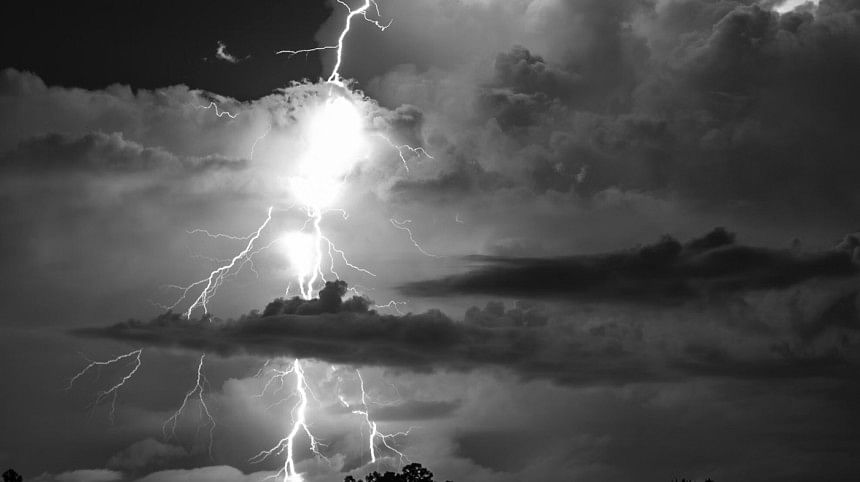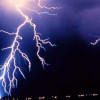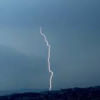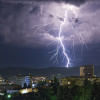5 things to do to protect yourself from lightning

Protecting yourself from lightning to avoid being electrocuted is a serious matter. When struck by lightning, you're vulnerable to numerous mental and physical damages, including muscle pains, broken bones, confusion, hearing loss, seizures, burns, behavioural changes, ocular cataracts, and even cardiac arrest. Needless to say, being struck by lightning is mostly fatal.
So, here's what you can do to protect yourself from lightning and avoid potential permanent injury.
Stay indoors
When lightning strikes and thunder rumbles, staying indoors is the best way to secure yourself.
From a distance, you might be tempted to romanticise the rumbling, but up close, it's no joke. This is a good time to cosy up indoors and get comfortable until the storm passes. You are less likely to get struck as you are protected from any direct electric contact.
Never seek shelter under a tree
If you do find yourself outdoors when thunder rumbles, keep in mind that seeking shelter under a tree is a big no-no.
While trees offer comforting space to stop under during regular rainfall, the same cannot be said for lightning, as trees are essentially lightning magnets and not a very good conductor.
The electricity passes through the tree and goes into the earth. Additionally, trees are particularly noticeable targets for lightning strikes as they are towering. If and when lightning strikes a tree you are seeking shelter under, it will pass through your body as it makes its way through to the ground.
Even if the lightning does not strike the tree, it might strike the ground you are standing on, which can cause equal injury.
Avoid being barefoot
If you are not someone who has a habit of wearing shoes or sandals in the house, a thunderstorm should prompt you otherwise. You can be in for a startling experience if lightning strikes you while you are barefoot as it can travel through the earth.
You should make an exception and protect yourself from the electrical charge of the ground by donning shoes with rubber soles.
So, make sure your feet are covered properly, indoors and outdoors.
Avoid elevated areas
It is advisable to avoid elevated places during a thunderstorm. As towering things are frequently struck by lightning, being high above the ground increases your vulnerability.
One can attract lightning by standing alone in an open space, nearby or under trees, or even by any kind of pole. Therefore, spend more time in lower areas such as inside or near buildings where you will not attract the intense attention of the natural world.
Avoid showering
The idea that you should not shower during a lightning storm might sound like an old wives tale, however, there is some truth to this belief.
The assertion is based on the idea that lightning can strike a house or building, even one that is shielded from bad weather, and cause shockwaves that can reach metal pipes and plumbing, shocking anyone who touches the showerhead or tap.
Water also carries electricity so you might risk zapping yourself. Ideally, you should wait at least 30 minutes from the last rumble you hear to take a shower.
Wherever you are, keep a look out for the weather so you know what to expect and assess which spaces and precautionary measures you can take.

 For all latest news, follow The Daily Star's Google News channel.
For all latest news, follow The Daily Star's Google News channel. 








Comments